
Dans ce numéro
- Lettre de la directrice générale du CAÉB
- Lauréats des Prix du Gouverneur général
- Livres pour apprendre : pensionnats indiens
- Titre en vedette
- Les cinq favoris
- Titre en vedette pour ados
- Les cinq favoris des enfants
- Les cinq favoris des ados
- Lancement de la saison des clubs de lecture d’été
- Consultez notre blogue du mois!
- Astuce sur les services
- Webinaires
- Congé
- Restez branchés!
Lettre de la directrice générale du CAÉB
Très chers abonnés,
Le rôle du CAÉB, en tant que réserve d’histoires et d’information, nous tient très à cœur. Nous collaborons avec des éditeurs et des responsables de prix littéraires et de programmes de lecture pour nous assurer que chaque lecteur, quelle que soit sa manière de lire, puisse rester informé et prendre part à nos échanges nationaux. Que vous choisissiez Five Little Indians, Prix du Gouverneur général qui traite des pensionnats indiens, How to Pronounce Knife, lauréat du Prix Trillium, ou l’un des magnifiques ouvrages du Club de lecture d’été TD, nos livres sont là pour vous aider à apprendre, à réfléchir, à vous divertir ou à vous investir. Nous faisons tout ce qui est possible pour que les livres de notre collection soient le reflet des expériences et des histoires personnelles de nos abonnés. Nous devrions pouvoir nous identifier et retrouver nos voisins dans les histoires que nous lisons.
Nous célébrons le début de la saison des clubs de lecture d’été. Le CAÉB collabore avec le Club de lecture d’été TD pour fournir des carnets de notes adaptés aux enfants incapables de lire les imprimés et aider d’autres clubs de lecture d’été, comme ceux de la Colombie-Britannique et du Nouveau-Brunswick, à fournir des versions accessibles des nombreux livres figurant sur leurs listes de lecture.
Si vous pensez à des livres que vous aimeriez voir ajoutés à notre collection, faites-nous en part à l’aide de notre formulaire de suggestion. Cet été, suivez-nous sur les réseaux sociaux et pensez à lire nos blogues et nos bulletins pour retrouver toute l’information sur les ajouts à nos collections.
Les livres ont toujours été là pour nous aider à donner un sens au monde qui nous entoure. Comme bon nombre de nos compatriotes, nous avons appris la découverte de près d’un millier de tombes anonymes dans des pensionnats indiens ces dernières semaines. Tout au long du mois de juin, nous avons mis en vedette des auteurs autochtones, et plus particulièrement des survivants de pensionnats, car ce sont leurs voix et leurs expériences qui doivent être au centre des conversations. Nous sommes de tout cœur avec ceux qui sont touchés par cette tragédie nationale.
Restez prudents,
Laurie Davidson
Directrice générale du CAÉB
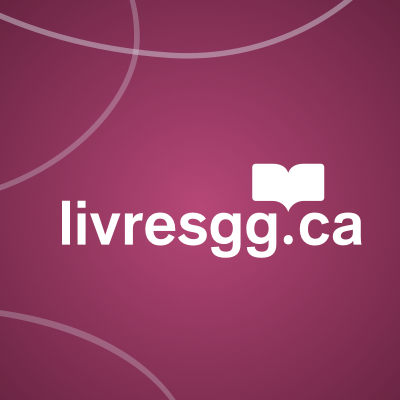
Lauréats des Prix du Gouverneur général
Les lauréats des Prix littéraires du Gouverneur général 2020, dont l’attribution a été repoussée en raison de la pandémie, ont été dévoilés le 1er juin 2021. Le CAÉB collabore avec les organisateurs de ces prix pour mettre les livres finalistes dans les principales catégories à la disposition de ses lecteurs, et tient à féliciter l’ensemble des lauréats et des nommés.
Les lauréats des prix 2020 sont :
- Chasse à l’homme, de Sophie Létourneau
- Littérature jeunesse – Texte : Lac Adélard (Collection Noire), de François Blais
Les prix 2021 seront décernés à l’automne, selon le calendrier habituel.
Livres pour apprendre : pensionnats indiens
Alors que le Canada apprend la découverte de tombes anonymes dans des pensionnats indiens, nous sommes nombreux à nous tourner vers les livres pour nous informer et pour mieux comprendre notre histoire et les torts causés aux communautés autochtones. Nous aimerions proposer quelques ressources de notre collection, et exprimer nos plus sincères condoléances aux communautés autochtones de partout au pays.
Lectures pour les adultes
- Rapports de la Commission de vérité et réconciliation
- Cheval Indien, roman de Richard Wagamese, Paul Gagné, Lori Saint-Martin
- L'Indien malcommode: un portrait inattendu des autochtones d’Amérique du Nord de Thomas King, Daniel Poliquin
- Histoire: récits autochtones, de Thomas King
Lectures pour les enfants
- Étrangère chez moi : une histoire vraie, de Christy Jordan-Fenton
- Je ne suis pas un numéro, de Kathy Kacer, Jenny Kay Dupuis
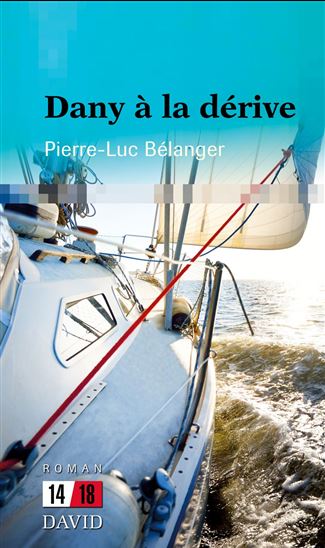
Titre en vedette : Dany à la dérive
Dany est un jeune homme qui se cherche. Franco-Ontarien par son père et Haïtien par sa mère, il se trouve trop noir pour les Blancs, trop clean pour les drogués... et pas assez comme les autres. Il va trouver une façon de s'affirmer dans le tatouage, puis dans la voile.
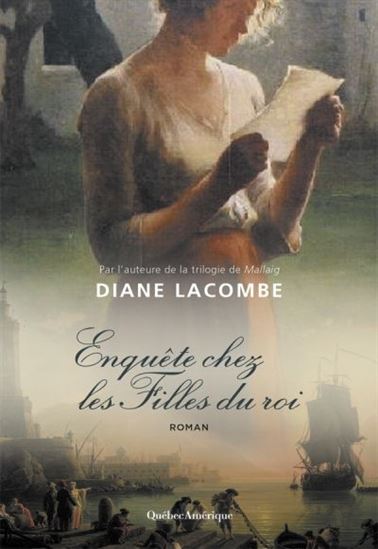
Les cinq favoris
Les cinq livres les plus populaires auprès de nos lecteurs au cours du dernier mois :
- Enquête chez les Filles du roi: roman (Tous continents) de Diane Lacombe Histoire (romans)
- Du côté des Laurentides: 1, L'école de rang de Louise Tremblay-D'Essiamb Canada français (romans)
- Les offrandes de Louis Carmain Policiers (romans)
- Là où je me terre: roman de Caroline Dawson Canada (romans)
- Les yeux tristes de mon camion (Collection Papiers collés) de Serge Bouchard Peuples autochtones
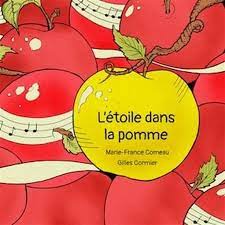
Titre en vedette pour enfants : L'étoile dans la pomme
Une pomme jaune garde en son coeur un secret étoilé. Au milieu de centaines de pommes rouges, une pomme un peu différente se laisse bercer par un rayon de lune. Une berceuse révèle enfin le secret derrière l’étoile mystérieuse cachée au coeur de chaque pomme. Le retour scintillant du classique jeunesse de Marie-France Comeau et Gilles Cormier dans une nouvelle présentation tout aussi croquante !
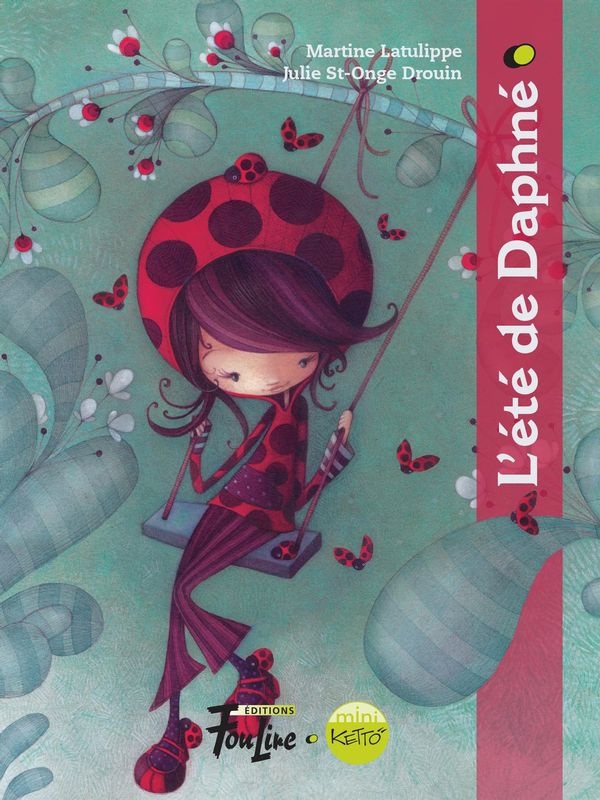
Les cinq favoris des enfants
- L'été de Daphné (Mini Ketto #8) de Martine Latulippe
- Les collégiens mènent l'enquête (Aux quatre coins du temps) de Chrystine Brouillet
- Le réveil des créatures ((Wiz).) de John Barrowman
- Les pirates (Roman-jeunesse. livre XXXIX) de Chrystine Brouillet
- Mystères de Chine (Roman Jeunesse Ser.) de Chrystine Brouillet
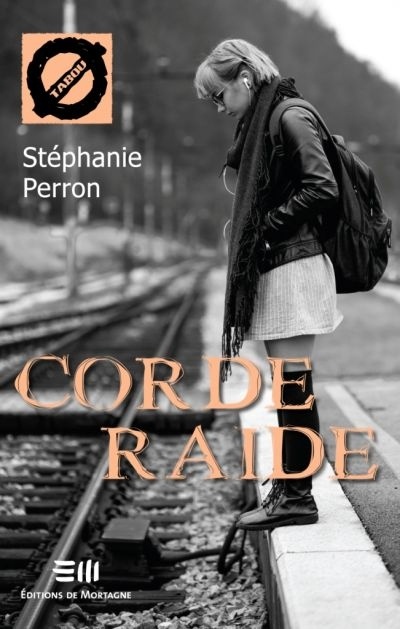
Les cinq favoris des ados
- Corde raide de Stéphanie Perron
- Spirales: Spirales (Ailes d'Alexanne #5) d'Anne Robillard
- Voyage au pays du Montnoir: 1, La ville sans nom de Christiane Duchesne
- Maddie Maud (Magellan) de Camille Bouchard
- Le pire vampire: polar (14/18) de Claude Forand

Lancement de la saison des clubs de lecture d’été
Un peu de divertissement supplémentaire ne sera pas de refus cette année. Encore une fois cette année, le CAÉB soutient les clubs de lecture d’été en veillant à ce que tous les jeunes, quelle que soit leur manière de lire, puissent participer.
Si votre bibliothèque anime un Club de lecture d’été TD, une version adaptée du carnet de notes est à la disposition des enfants incapables de lire les imprimés. Les bibliothèques participantes ont reçu leur livraison de carnets de notes, que l’on peut également télécharger depuis la page consacrée à l’accessibilité des sites destinés au personnel et au public.
Consultez la page Web que le CAÉB consacre au Club de lecture d’été TD pour obtenir des liens vers des versions accessibles des livres de la liste de lecture. Nous vous invitons à choisir des livres de cette liste pour votre programmation.
Nous collaborons avec le Club de lecture d’été du Nouveau-Brunswick pour offrir des formats accessibles, en anglais et en français, de leurs livres en vedette, et avec le Club de lecture d’été de la C.-B. en proposant également leurs livres (en anglais seulement).
Nous tenons à remercier nos bibliothèques membres de proposer des programmes, des ressources et des livres accessibles à leurs abonnés incapables de lire les imprimés.
Consultez notre blogue du mois!
Vous aimeriez rendre la programmation de votre bibliothèque plus accessible mais vous ne savez pas comment vous y prendre? Nous vous proposons de lire un article de Rachel Breau, directrice des Services aux membres, rempli de conseils et de ressources qui pourront vous aider. Nous vous présentons également Mackenzie, notre toute première étudiante stagiaire, qui a écrit un article de blogue sur son expérience au CAÉB.
Astuce sur les services
Alors que les bibliothèques membres reprennent lentement leur activité un peu partout au pays, nous vous rappelons que notre équipe de services aux membres est là pour vous aider. N’hésitez pas à communiquer avec les Services aux membres si vous avez des questions. De plus, nous proposons sur notre site Web de nombreuses ressources qui pourront vous être utiles lorsque vous reprendrez contact avec les abonnés qui font appel à vos services accessibles.
Mise en route pour les bibliothèques
Outils de rayonnement
Exemple de contenu de médias sociaux (Word)
Exemple de contenu Web sur le CAÉB (Word)
Webinaires
Vous aimeriez que certains sujets entourant l’accessibilité soient abordés dans nos webinaires? Nous mettons régulièrement nos contenus à jour et sommes toujours avides de connaître les idées des employés de bibliothèque. Faites-nous parvenir vos suggestions à l’adresse membres@bibliocaeb.ca.
Webinaire d'initiation au CAÉB
Introduction détaillée aux services que le CAÉB offre à votre bibliothèque et à vos abonnés incapables de lire les imprimés.
Mercredi, 18 août 13h00 à 14h00 HAE
Formation sur le CAÉB pour le personnel de première ligne
Donne une vue d’ensemble du service du CAÉB à l’intention de vos employés qui ont besoin de connaître les points essentiels du service.
Mardi, 20 juillet 13h00 à 14h00 HAE
Webinaire sur l'accès des enseignants au CAÉB
Apprenez comment vous pouvez offrir aux enseignants de votre communauté un accès gratuit à la collection des médias substituts du CAÉB et à Bookshare pour leurs élèves incapables de lire les imprimés. Ce webinaire est ouvert au personnel de bibliothèque et aux enseignants.
Jeudi, 26 août 15h00 à 16h00 HAE
Congé
Le CAÉB sera fermé le jeudi 1er juillet à l’occasion de la fête du Canada. Nous serons de retour aux horaires habituels le vendredi 2 juillet.
Restez branchés!
Visitez les réseaux sociaux du CAÉB, comme Twitter, Facebook et notre blog, pour plus d’informations sur les nouveautés dans le monde de la lecture accessible.
